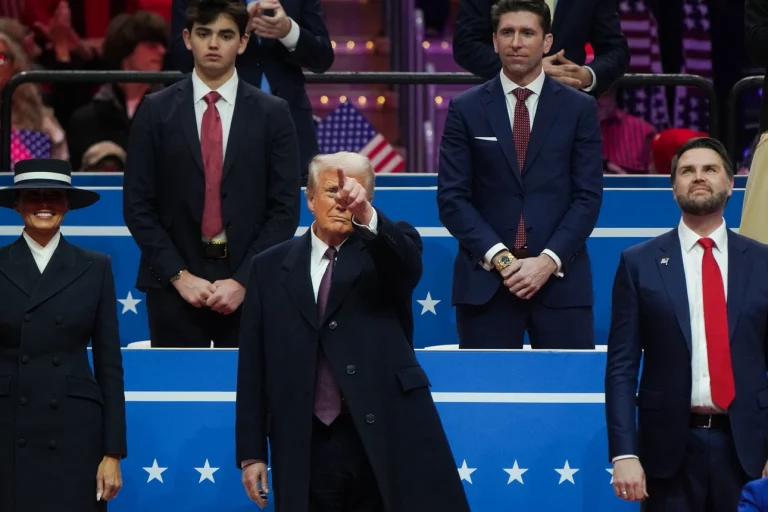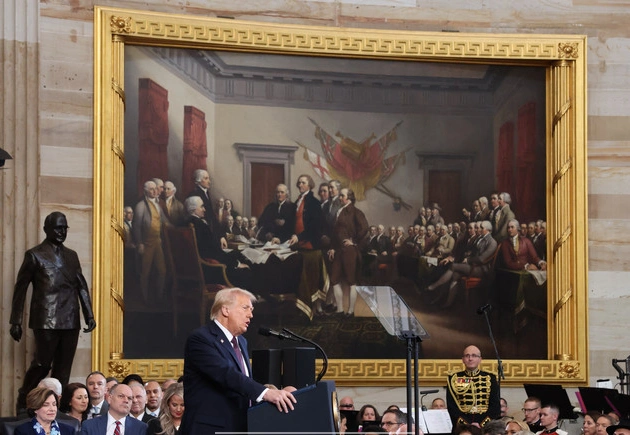
Trump’s Executive Orders: Impact on Birthright Citizenship, DEI, and Trade Policies
President-elect Donald Trump is set to implement a series of executive orders reshaping the federal government’s approach to immigrants, transgender individuals, and diversity initiatives. These orders, though just a fraction of the many promised by the new administration, signal a bold use of executive power to revamp various aspects of governance without congressional approval.
Renaming Geographic Features and Economic Policies
Among the attention-grabbing orders are proposals to rename the Gulf of Mexico as the “Gulf of America” and revert the name of Alaska’s highest peak from Denali back to Mount McKinley. These moves, largely symbolic in nature, aim to resonate with supporters of the Make America Great Again (MAGA) movement.
Trump’s commitment to reducing inflation and cutting costs remains vague, with a focus on deregulation and promoting fossil fuel extraction as key strategies. Additionally, his ambition to reclaim the Panama Canal faces legal and diplomatic challenges.
Trade Policies and Tariffs
While Trump had promised substantial tariffs on imports, the initial executive order directs agencies to investigate trade deficits without imposing new tariffs immediately. China, Canada, and Mexico are specifically targeted for evaluation, hinting at potential future trade actions.
Despite campaign rhetoric advocating high tariffs, the practicality of such measures is under scrutiny, especially concerning the impact on global trade relations.
Immigration Reforms
Trump’s focus on immigration is evident through ten executive orders, including efforts to end birthright citizenship under the 14th Amendment. These actions are expected to face legal challenges, particularly from advocates of immigrant rights.
Enhanced immigration enforcement, declaration of a national emergency at the southern border, and changes to asylum policies underline the administration’s stringent stance on border security.
DEI Programs and Transgender Rights
Another executive order targets diversity, equity, and inclusion (DEI) initiatives across government programs. The move to dismantle these programs is positioned as a step towards streamlining bureaucracy, eliciting mixed reactions from various quarters.
Furthermore, Trump’s directives to roll back programs supporting transgender and non-binary individuals reflect a conservative approach to gender identity issues. The administration’s emphasis on a binary gender system and restrictions on gender-related policies provoke debates on civil rights and inclusivity.
Challenges and Legal Implications
The ambitious agenda set forth by Trump faces logistical hurdles and legal contests, with opposition groups gearing up to challenge the executive orders in courts. The need for transparency in policy implementation and adherence to legal norms is paramount to avoid prolonged legal battles and ensure governance credibility.
As the administration navigates the complexities of executing these orders, the impact on various sectors and communities will unfold, shaping the political landscape for the foreseeable future.













